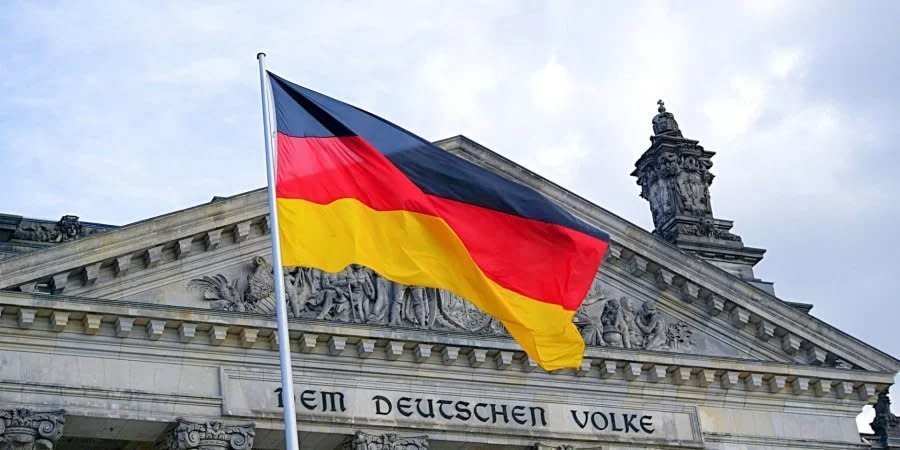Germany's Bundestag approves petition to deliver heavy weapons to Ukraine

The resolution passed with 586 votes in favor, 100 against and seven abstentions.
The delivery of weapons was backed by the parties of the German ruling coalition and the CDU/CSU bloc.
The relevant decision was preceded by an hour-long debate.
The document now greenlights the German government to "deliver effective, including heavy weapons and complex German-made systems to Ukraine."
The petition states that the arms exports should be discussed in a close exchange of views with Germany’s NATO partners.
Earlier, Ukrainian President Volodymyr Zelensky called for the urgent transfer of heavy artillery, heavy armored vehicles, air defense systems and aircraft to Ukraine so that it would be able to defend itself against Russian aggression.
Read also: Merkel maintains Germany was right to keep Ukraine out of NATO back in 2008
Later he said that despite the increase in military aid from Western allies, the Armed Forces of Ukraine still did not have enough heavy weapons to defeat the Russian army.
On April 22, Zelensky said that Ukraine’s partners had started providing Ukraine with the weapons it had requested.
Arms supplies to Ukraine: what is wrong with Germany's position
Germany has refused to supply weapons to Ukraine for many year, since the beginning of Russia's war on Ukraine in the Donbas in 2014.
Read also: More heavy weapons needed to lift siege of Mariupol, says Zelensky
Berlin said it wanted to avoid an escalation of the conflict. At the same time, according to journalists, Germany continued to sell military goods to Russia, despite the embargo on Russian arms sales after 2014.
After the beginning of a full-scale Russian war against Ukraine on Feb. 24, 2022, Germany changed its policy on arms supplies to Ukraine. Over the first month of the invasion (as of late March), Germany supplied Ukraine with weapons and defense goods worth EUR 186 million. They included grenade launchers, anti-aircraft missiles, machine guns and ammunition, but no heavy weapons: tanks and armored vehicles, helicopters and fighters, and artillery.
Ukraine has announced its readiness to purchase 100 Panzerhaubitze 2000 self-propelled artillery units from Germany (equipped with a 155 mm cannon). It was assumed that the Bundeswehr would later replace this military equipment with new armored howitzers.
Read also: Germany will hand over 500 Stinger missiles and a thousand anti-tank weapons to Ukraine
Similarly, Ukraine expected to purchase German Marder infantry fighting vehicles directly from their manufacturer, the German company Rheinmetall.
However, the German government refused to meet these requests, naming several reasons in recent weeks that allegedly hampered the supply of heavy weapons to Ukraine.
In particular, the government stated that Berlin's ability to supply weapons from the Bundeswehr's stockpiles had "reached the limit," and that it needed to coordinate the decision with NATO to "prevent a greater disaster.”
German Chancellor Olaf Scholz then announced his intention to finance the direct supply of weapons to Kyiv from German manufacturers: the German government allocated EUR 2 billion for new military equipment, "mainly to help Ukraine."
Read also: How Olaf Scholz became Germany’s antihero, blocking the supply of heavy weapons to Ukraine
However, it soon became clear that in practice the decision was quite different: Ukraine would receive only EUR 1 billion, and the provision of weapons was to be performed under a complex scheme.
Ukraine requested that Leopard tanks, Marder, Puma, GTK Boxer and TPz 1 Fuchs armored vehicles, as well as multiple rocket launchers, anti-ship missiles, Milan and Spike anti-tank systems be included in this assistance package.
However, according to media reports, the chancellor deleted all of the heavy weapons from this list.

